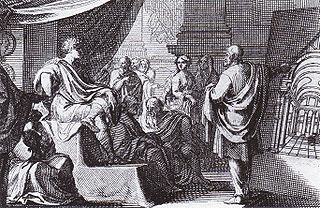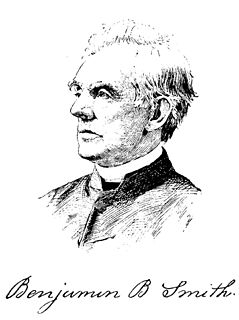A Quote by Vitruvius
I, therefore, O Caesar, do not publish this work, merely prefixing my name to a treatise which of right belongs to others, nor think of acquiring reputation by finding fault with the works of any one.
Related Quotes
What this country needs is more people to inspire others with confidence, and fewer people to discourage any initiative in the right direction more to get into the thick of things, fewer to sit on the sidelines, merely finding fault more to point out what's right with the world, and fewer to keep harping on what's wrong with it and more who are interested in lighting candles, and fewer who blow them out.
When therefore we are hindered, or disturbed, or grieved, let us never attribute it to others, but to ourselves; that is, to our own principles. An uninstructed person will lay the fault of his own bad condition upon others. Someone just starting instruction will lay the fault on himself. Some who is perfectly instructed will place blame neither on others nor on himself.
O Romeo, Romeo, wherefore art thou Romeo? Deny thy father refuse thy name, thou art thyself thou not a montegue, what is montegue? tis nor hand nor foot nor any other part belonging to a man What is in a name? That which we call a rose by any other name would smell as sweet, So Romeo would were he not Romeo called retain such dear perfection to which he owes without that title, Romeo, Doth thy name! And for that name which is no part of thee, take all thyself.
He has great tranquillity of heart who cares neither for the praises nor the fault-finding of men. He will easily be content and pacified, whose conscience is pure. You are not holier if you are praised, nor the more worthless if you are found fault with. What you are, that you are; neither by word can you be made greater than what you are in the sight of God.
Many of our miseries are merely comparative: we are often made unhappy, not by the presence of any real evil, but by the absence of some fictitious good; of something which is not required by any real want of nature, which has not in itself any power of gratification, and which neither reason nor fancy would have prompted us to wish, did we not see it in the possession of others.
The Lord called me by the way of simplicity and humility, and this way He hath shown me in truth for me and those who will believe and imitate me. And therefore I would that ye name not to me any rule, neither of St. Augustine, nor St. Benedict, nor of Bernard, nor any way or form of living, but that which was mercifully shown and given me by the Lord.
I paint and I draw and I write and I do other things too, and recently some people at school were asking if I'd ever publish any of my work. But I almost feel like I would have to publish it under another name because there's a definition of me out there that feels kind of stuck in the moment when it was formed.
Particular honour belongs to those who believed in the possibility of mechanical flight when all the world was against them; not the visionaries because they hoped for it merely, but those who by sheer force of intellect perceived the means by which it could be accomplished and directed their experiments along the right path. ... The name of Lilienthal is now among the most honoured, but curiously his own countrymen were the last to recognize the value of his work.
He was Caesar and Pope in one; but he was Pope without Pope's pretensions, Caesar without the legions of Caesar: without a standing army, without a bodyguard, without a palace, without a fixed revenue; if ever any man had the right to say that he ruled by the right divine, it was Mohammed, for he had all the power without its instruments and without its supports.
Around the time of the Terran Caesar Augustus, a Martian artist had been composing a work of art. It could have been called a poem, a musical opus, or a philosophical treatise; it was a series of emotions arranged in tragic, logical necessity. Since it could be experienced by a human only in the sense in which a man blind from birth might have a sunset explained to him, it does not matter which category it be assigned.



































